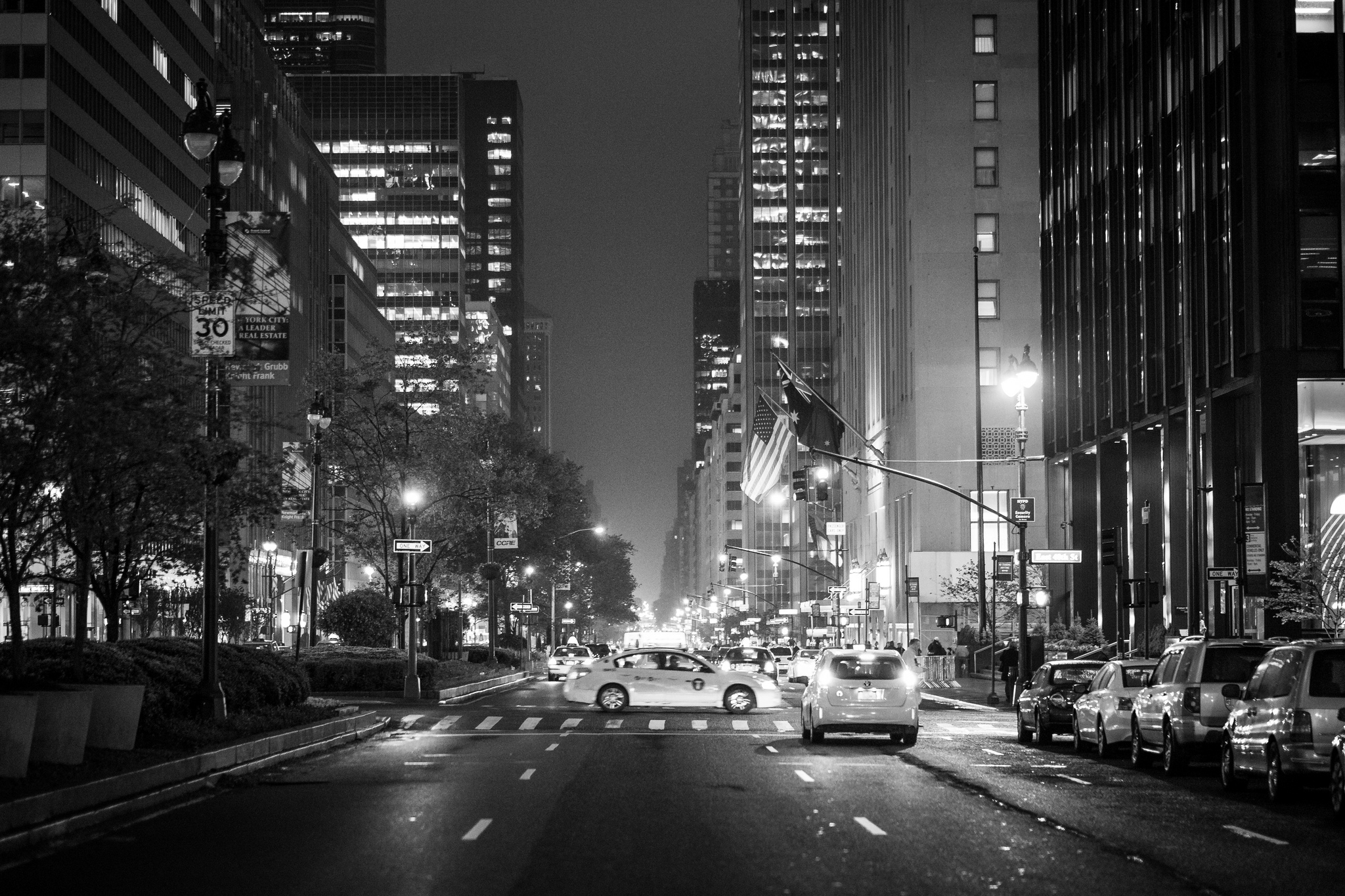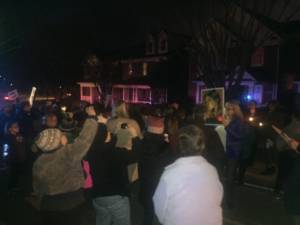Columbus, Minnesota
I found myself holding the rear hooves of an upside-down, dead deer while a large, gray wolf paced a few feet away. It was a clear and cold afternoon, ten degrees above zero under a bright Minnesotan sun. We watched the wolf and the wolf watched us. Peggy turned and walked back to a truck piled high with roadkill. A dead calf, donated by a local farmer, peered out from among the tangle of wild limbs. A live rat terrier perched on top of the pile like a conquering queen. She licked at frozen blood.
I was with this wolf, and this woman, and this dog, because I was fixated on the wolf as a cultural symbol of villainy, of evil. I was writing a paper for an academic conference. Peggy reached her arm in among the bodies. “You know,” she called over her shoulder, “after all these years, we still prefer Chicago Cutlery®.” Her arm reappeared with a green-handled chef’s knife.






 New York City
New York City











